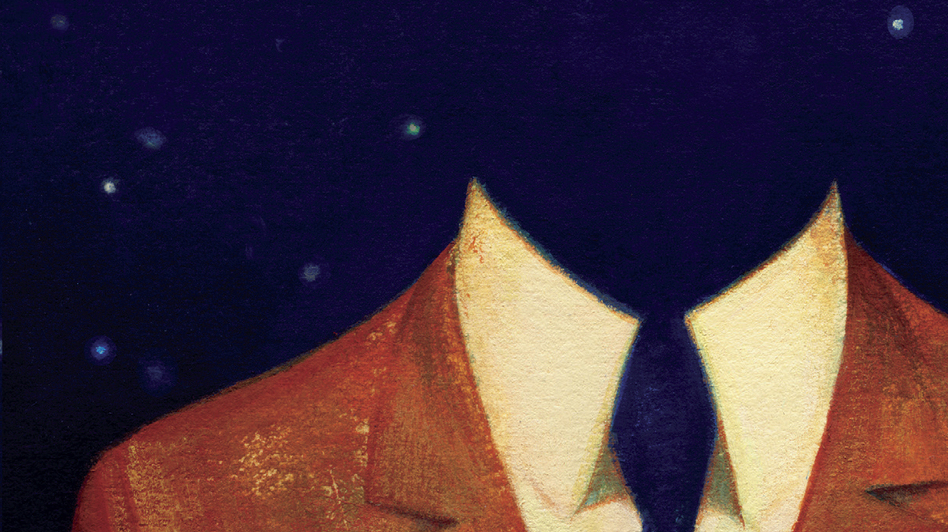Lisa Blackman
In October 2013 I took part in ‘Voices, Memory, Forgetting’, an interdisciplinary event organised by the Hearing the Voice project in partnership with the Memory Network. The day investigated the role of memory in situations of emotional distress and creative transformation, specifically in the context of voice hearing. My argument in this blog contribution will be that voice hearing can be approached as a modality of remembering, or sometimes forgetting, in the context of cultural theory, philosophy, and radical insights developed by the Hearing Voices Network.
I want to start by reproducing two paragraphs from my current book, Immaterial Bodies: Affect, Embodiment, Mediation (Sage, 2012), which situate my own interests in memory and voice hearing.
Listening to Voices: An Ethics of Entanglement
My academic and intellectual interests were informed by my own experiences of growing up with a mother who hears voices. I was aware at a very young age of the power of psychiatry, having experienced my mother being sectioned and hospitalized cyclically, and witnessing her reliance, since the age of 18, on a repeat prescription of Largactyl. In times of crisis this did nothing to lessen the distressing voices that she heard. I had a rich fantasy life as a child, and my mother’s voices and delusions became part of my world. As with psychosis, the distinction between fact and fiction was blurred in my own experiences of my mother’s voices. I responded to her accounts and engagement with them as real, as real as they were for her, and as meaningful communications. There were patterns to her voices, particular voices visited each time, particularly her granny who offered comfort and reassurance, and other voices which were more abusive and distressing. These voices also had a pattern and rhythm and became familiar interlocutors. I have and always felt that I got to know much more about my mother and her life when she was psychotic. What was confusing to me at a very young age was why her experiences then were not listened to and not considered as having any meaning. They were predominantly to be suppressed by drugs and electroconvulsive therapy. The voices were ignored, silenced and forgotten as she returned to a far from acceptable version of normality.
My encounter with psychiatry was to return as a teenager when my mother, prompted by her psychiatrist, suggested that I might have genetic counselling. I had already read all the books on psychiatry in my local library and was aware of an established narrative: that if you have one or two parents with mental health difficulties (read ‘illness’) you have a higher chance of developing mental illness (read ‘difficulties’) as ‘it’, whatever ‘it’ was, could be passed on genetically. This narrative had terrified me as a teenager and I can remember when I reached my 25th birthday feeling palpable relief that I had managed to escape, not my mother’s experiences, as I had felt deep depression and anxiety about my own potential ‘risk’, but the ‘psychiatric system’. I had, however, been told by a counsellor I saw whilst doing a psychology degree that I probably would not finish the degree as I had ‘a lot of trauma in my life’. She recommended that I saw a male psychiatrist who was also a vicar. I declined and went on to get a first-class honours degree. I tell this story because my PhD, which I went on to do in the early 1990s, was very much driven by my own anger and sense of injustice at the biogenetic model within psychiatry. However, my experiences and motivations were written out of the PhD. It was presented as an academic study, informed primarily by the historical approach to the human sciences developed by Michel Foucault and extended in the context of psychiatry and the psychological sciences by Nikolas Rose – what he refers to as the ‘psychological complex’. The PhD was later written up as a book, Hearing Voices: Embodiment and Experience (Blackman, 2001).
I subscribe to the view that voices are modalities of communication – they have something meaningful to say. They communicate something about the singularity of the person’s own life and the situatedness of that life within specific socio-historical and geo-political settings. This view and approach to voice hearing I have always been convinced about and this was confirmed to me during my PhD research in the early nineties where I met and collaborated with those who set up and shaped the very early beginnings of the Hearing Voices Network in Manchester. This Network provided support, inspiration and new practices, encouraging voice hearers to become experts of their own experience and to develop techniques where they might start to listen – to what were often painful, abusive and distressing voices. The HVN quickly established that building alliances and comradeship with other more positive voices, which many voice hearers experience as comforting and reassuring – acting much like good friends – helped the voice hearer to confront traumatic pasts and histories; to remember the un-representable, perhaps. Regarding my Mother’s voices I have carrier bags upon carrier bags of her writings over the years voluminously produced when she has been hospitalized. She writes her voices obsessively, over and over, and you can very clearly start to see patterns, regularities, re-turns and the way in which distinctions between fact, fiction and fantasy become blurred – I will return to this point later.
In my latest book and development of my engagement with voice hearing I have started to think about the relationship between trauma, memory and forgetting and have been inspired by the work of two French psychoanalysts who work in the area of the intergenerational transmission of trauma, Francoise Davoine and Max Guadilliere, and the work of the American cultural theorist, Grace Cho, who also grew up with a Mother who hears voices and asks the question; what does it mean to listen with and through another’s voice? I want to say something about this work and why I think it is so important.
Grace Cho recounts an experience of growing up with a Mother who had moved to America as a GI bride after the Korean War. Her Mother never spoke about her migration story – it was shrouded in secrecy and silence. What did speak about the life her Mother never spoke about were her Mother’s voices. As Cho recounts, she discovered there was a common story in women who migrated to America from Korea as GI brides. Their stories were told in particular places – by social workers and psychiatrists, where the common narrative was of the women’s movement from rural poverty in Korea to psychosis in America. On the basis of this fact – a fact found in social work literature – Cho invites us to listen with and through another’s voice to hear the traumatic histories which have been silenced, marginalized, covered over and become transmuted into voices – voices which haunt the next generation. To do this she combines fact, fiction and fantasy in her own re-telling, which I think is an important strategy and one I am developing in my current work. This invitation (to listen with and through another’s voice) is one we can also find in the work of those interested in the intergenerational transmission of trauma, such as Davoine and Gaudilliere. In their book, History Beyond Trauma, they suggest that trauma that can’t be expressed (perhaps because it is not socially acknowledged or sanctioned – they particularly focus on the trauma of the first and second world wars, for example) can be communicated through embodied forms – voices, for example, which speak what cannot be spoken. These traumas can thus be passed on across generations. In this sense, voices might be considered modalities of forgetting and potential modalities of remembering (of restoring social links, which have been broken). They can help us to remember and understand forms of inequality and oppression and traumatic histories, which some people are forced to carry, and who often break down with the unbearable burden.
I want to finish by sharing an example of a voice hearer’s story who participated in a video documentary I made in 1997. The documentary was called Inside Looking Out; Personal Perspectives and includes Ron Coleman, who was central to the shaping and founding of the HVN in the UK. He gave a lecture to my undergraduate media and communication students at Goldsmiths, University of London, which we filmed for the documentary. Coleman titled the lecture, ‘Feeling FINE’, where FINE stood as an acronym for Fucked Up, Insecure, Neurotic and Emotional! As a self-titled ‘ex-paranoid schizophrenic’ he recounts the multiple voices he hears, including the voice of the priest who abused him when he was an altar boy as a child. The process of remembering this traumatic history has been long, arduous, painful and complicated, as attuning to the voices as modalities of remembering is not an easy practice. It extends beyond the efficacies of a self-present, conversant subject.
In the documentary we hear another voice hearer tell a painful story of a traumatic history, which became sensationalized in the press at the time. He was a psychiatric nurse who had made a suicide pact with his partner after discovering he was HIV positive (he was terrified of his family finding out). At that time, in the mid to late nineties, an AIDS diagnosis was considered a potential death sentence and gay men were repeatedly considered objects of fear, danger and loathing. They were made to carry the fantasy projections of those who discriminated against people with different sexualities. He felt unable to live this and tried to end his life after hearing voices telling him to kill himself. He was unsuccessful, although his partner did kill himself, and he was subsequently pilloried in the press, which linked his supposed instability to homosexuality more generally. The voices were transmutations of social histories that increasingly are being forgotten, and this historical document testifies to what voices can carry and communicate as traces, fragments and echoes of trauma and memory – individual and collective.
This is another example of why it is important to recover social links that have been broken; to begin to link up the traumatic histories of some of those hearing voices, with social histories that haven’t been told or which are only told in particular ways (through particular sanctioned narratives and authorized archives, for example). As I argue in my book, these histories are always a mix of fact, fiction and fantasy. This is what I learnt from my Mother’s voices and the carrier bags which hold these traces to be re-animated in the present. Surely we all live our lives through a blurring of fact, fiction and fantasy – isn’t this how memory works? Re-animating the stories that voices communicate, finding ways to listen with, to and through another’s voice(s) opens up to the complexities of memory and forgetting, and the challenges of what I call mediated forms of perception. Voices as modalities of remembering are articulations of how the past is always very much in the present. The question of how to listen to voices and what techniques and technologies of listening we might employ is a subject that I hope might stimulate further discussion in this blog.
Professor Lisa Blackman, Department of Media and Communications, Goldsmiths, University of London.
L.Blackman@gold.ac.uk
Biography
Lisa Blackman is a Professor in the Department of Media and Communications, Goldsmiths, University of London, UK. She works at the intersection of body studies and media and cultural theory. She is the editor of the journal Body & Society (Sage) and co-editor of Subjectivity (with Valerie Walkerdine, Palgrave). She has published four books: Immaterial Bodies: Affect, Embodiment, Mediation (2012, Sage/TCS); The Body: The Key Concepts (2008, Berg); Hearing Voices: Embodiment and Experience (2001, Free Association Books); Mass Hysteria: Critical Psychology and Media Studies (with Valerie Walkerdine, 2001, Palgrave). She teaches courses which span critical media psychology, affect studies, embodiment and body studies, and experimentation in the context of art/science. She is particularly interested in phenomena which have puzzled scientists, artists, literary writers and the popular imagination for centuries, including automaticity, voice hearing, suggestion and telepathy. She is currently working on a project, Haunted Data, exploring three social media controversies in the area of anomalous science.


